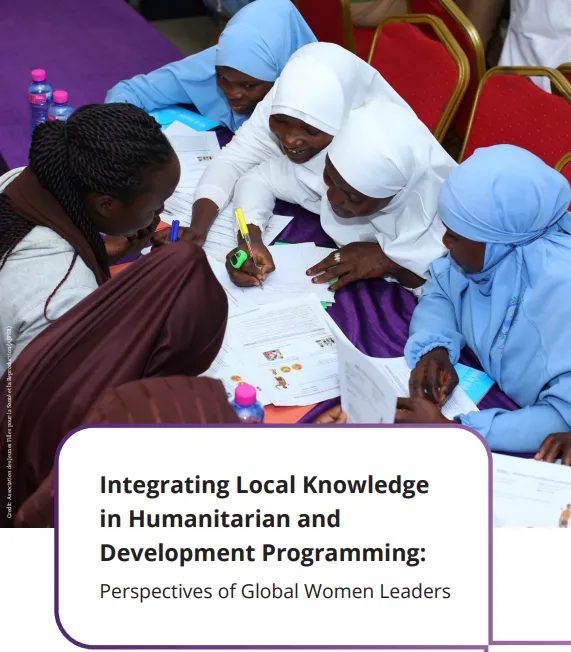
This report examines local knowledge integration in the context of global development and humanitarian aid work. It builds upon a recently published report by the U.S. Agency for International Development (USAID) called Integrating Local Knowledge in Development Programming. That report sought to “share knowledge of how development donors and implementing organizations leverage local knowledge to inform programming. This study aims to extend the original methods to better understand grassroots actors’ own interpretations of local knowledge and its integration into programming in their communities. It examines the perspectives of 29 grassroots leaders from women-led organizations around the world, looking deeply at the ways in which they conceptualize local knowledge and local knowledge stakeholders, their approaches to designing their own projects based on local knowledge, and their experiences sharing knowledge with international actors and donors. This builds the broader evidence base on integrating local knowledge to incorporate the perspectives of grassroots actors into the same conversation as the original study.
Approaches that achieve gender equality, that move beyond the individual level to address greater interpersonal, socio-cultural, and community factors that influence gender attitudes and behaviors, have been shown by rigorous impact evaluations to be impactful in promoting gender-equitable attitudes (e.g., SASA! Program in Uganda), reducing gender-based violence (e.g., Stepping Stones and Creating Futures program in South Africa), and decreasing social acceptance of intimate partner violence (e.g., RESPECT program in Tanzania). Read the report to find out more. Read More
Two numbers set the frame for the food security situation in the world today. 282 million people are very hungry in the world (acutely food insecure). 84.2 million more women and girls are hungry than men and boys. Food insecurity is a huge global problem, and it’s highly unequal. The Starving for Equality research shows how gender inequality isn’t just a woman’s problem; it’s also bad for men and boys. The research also shows that inequality makes men and boys hungrier, too. Read More
When crises hit, women step-up as leaders, engaging hands-on to navigate challenges. Women leaders are often overlooked and unsupported in times of crisis, yet they continue to make considerable contributions. They deliver essential health and nutrition services to the most vulnerable. They document human rights abuses and work to make communities safer. They strengthen their livelihoods through resourcefulness and creativity. CARE's Women in War research shows that women are the key to effective crises recovery and long-term peacebuilding. By removing barriers to their participation and amplifying the critical work they are already doing, we can give women the recognition they deserve and empower them to change the future of crisis response. Read More